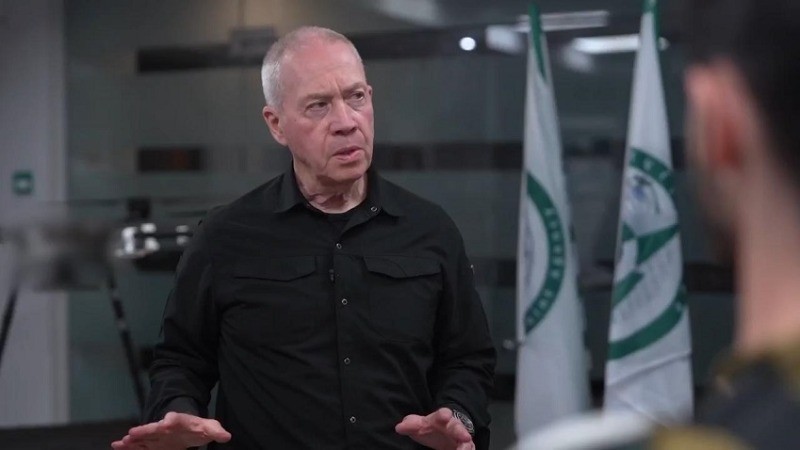
Israel’s Defense Minister issued a stern warning on Wednesday, stating that the country’s response to a recent Iranian missile attack will be both “lethal” and “surprising.” Meanwhile, the Israeli military continues its extensive operations in northern Gaza and launches a ground offensive against Hezbollah militants in Lebanon.
In diplomatic developments, Prime Minister Benjamin Netanyahu and President Joe Biden had their first conversation in seven weeks. According to a White House press secretary, the call included discussions about Israel's plans to respond to Iran's aggression.
The ongoing violence and devastation in Gaza, triggered by Hamas’s attack on October 7, 2023, coincides with Israel's intensified ground offensive against Hezbollah in Lebanon and its considerations for a significant retaliatory strike against Iran following the missile barrage on October 1.
Israel's Defense Minister, Yoav Gallant, announced on Wednesday that the country's retaliation to Iran's recent ballistic missile threats will be both "lethal" and "surprising." Speaking to military personnel, Gallant emphasized that the upcoming strike would be "precise" and unexpected, stating, "They won't understand what happened and how. They will see the results." He reiterated that any nation that attacks Israel will face consequences, especially in light of the missile attack on October 1.
The missile strike from Iran was reportedly in response to Israel's assassination of Hezbollah leader Hasan Nasrallah. In reaction to this escalation, Israel is currently in discussions with the United States about the extent of its military response. Prime Minister Benjamin Netanyahu recently spoke with President Joe Biden for the first time in seven weeks. The call, which lasted about 30 minutes, was described as "direct and very productive," with both leaders candid about their differing viewpoints.
During the conversation, Biden condemned Iran’s missile attack and called for renewed diplomatic efforts regarding the situation in Gaza. He affirmed Israel's right to defend itself against Hezbollah but urged Netanyahu to minimize civilian casualties during military operations in Lebanon. U.S. State Department spokesperson Matthew Miller echoed these concerns, advising against military actions in Lebanon that could mirror those in Gaza, emphasizing the need to avoid a similar humanitarian crisis.
In northern Gaza, the humanitarian situation continues to deteriorate as Israeli forces conduct extensive operations against Hamas. Ongoing shelling has disrupted aid delivery, especially in Jabaliya, where residents feel trapped amid escalating violence. Authorities in Gaza have reported numerous fatalities due to heavy fighting, straining health facilities. Fadel Naeem, director of Al-Ahly Hospital in Gaza City, stated that the hospital has declared a state of emergency, suspending non-urgent surgeries and discharging stable patients to manage the influx of casualties.
The military operations have led to a staggering number of Palestinian casualties, with over 42,000 reported dead, according to the Gaza Health Ministry. Furthermore, approximately 90% of Gaza's 2.3 million residents have been displaced, with many facing repeated displacements. Residents of Jabaliya voiced their fears of being forced to flee to southern Gaza, a move that could exacerbate their suffering.
Tensions are also rising in Lebanon, where Hezbollah's rocket attacks on Israel have prompted military responses. Netanyahu has warned that Lebanon could suffer the same fate as Gaza if its citizens do not oppose Hezbollah. Recent Israeli airstrikes in southern Lebanon have reportedly resulted in both civilian and militant casualties.
As the situation evolves, both Israel and the United States are actively discussing military strategies and humanitarian considerations. With the Israeli military preparing for further actions and the humanitarian crisis deepening, these developments are likely to significantly influence the conflict's trajectory in the near future.